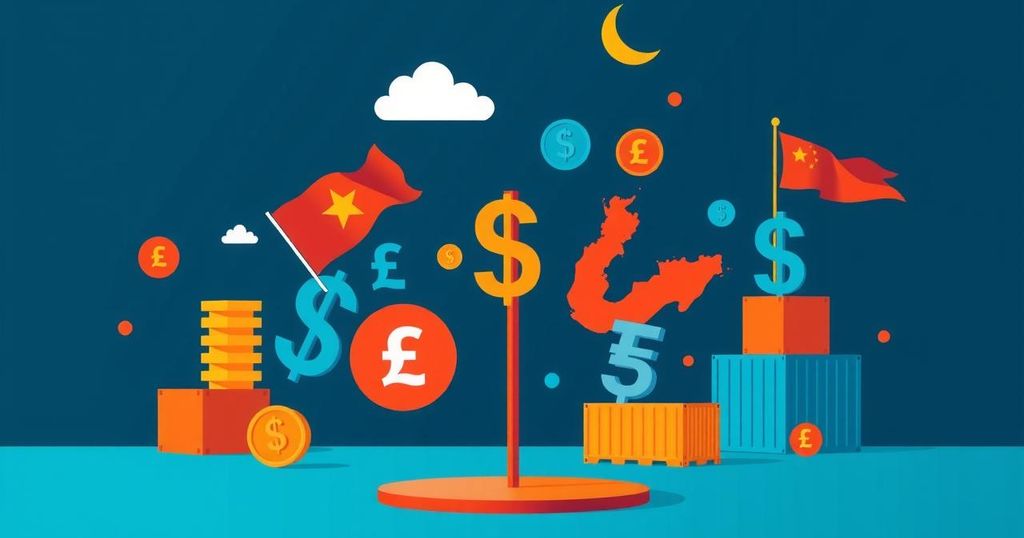Indian-American Lawmakers Oppose Trump’s Reciprocal Tariffs as Reckless
Indian-American lawmakers have condemned President Trump’s new 26 percent reciprocal tariffs on Indian goods, warning of their detrimental effects on working families and the economy. They stress the need for constructive dialogue between the US and India to address trade challenges and prevent recessionary impacts, emphasizing that these tariffs are reckless and counterproductive.
In recent developments, Indian-American lawmakers and members of the diaspora community have voiced their strong opposition to President Donald Trump’s newly imposed reciprocal tariffs, labeling them as “reckless and self-destructive”. They have urged stakeholders in both nations to initiate discussions to mitigate the challenges arising from these tariffs. On the 26th of March, Trump announced a substantial 26 percent reciprocal tariff on Indian goods, a response to India’s existing tariff rate of 52 percent on American products.
During his announcement, President Trump emphasized his intent to counter what he perceives as unfair trade practices by various countries, which now encompasses tariffs on about 60 nations around the globe. Critics argue that these tariffs will diminish the competitiveness of Indian goods within the American market. Congressman Raja Krishnamoorthi stated that the tariffs essentially act as a tax burden on working families, elevating living costs under the pretext of tax relief for wealthier Americans.
Congressman Krishnamoorthi further articulated concerns regarding the timing of these tariffs, asserting their detrimental impact on Illinois families and local businesses already facing economic difficulties. He criticized the tariffs for isolating the United States internationally and urged American citizens to advocate for the repeal of these policies before the country faces recessionary pressures.
Congressman Ro Khanna added his perspective through social media, highlighting the abruptness and lack of strategic planning associated with Trump’s tariff announcements. Khanna pointed out that these tariffs are expected to lead to increased prices across various sectors, thereby creating economic instability and raising concerns over potential recession or stagflation.
Indian-American Congressman Dr. Ami Bera reiterated that the tariffs will not enhance American prosperity but will instead escalate costs for consumers, contradicting any claims of tax relief. Ajay Bhutoria, a former advisor to President Biden, remarked that Trump’s unilateral approach could lead to significant challenges for both American and Indian economies by making essential goods less competitive.
Wendy Cutler, Vice President at the Asia Society Policy Institute, expressed that these reciprocal tariffs would shock trading partners and could harm the US economy by inciting inflation and degrading business investment. She noted that the consistency of these tariffs across various nations and their likely repercussions further complicate international trade relations and economic collaborations.
The imposition of reciprocal tariffs by President Trump has drawn severe criticism from Indian-American lawmakers who contend that the tariffs are damaging to both American families and international economic partnerships. The bipartisan concern highlights the urgency for dialogue between the US and India to prevent excessive economic strain from these tariffs. As the international community reacts, the implications for both nations’ economies underscore the need for collaborative strategies to ensure mutual benefits in trade relations.
Original Source: www.ndtv.com




Post Comment